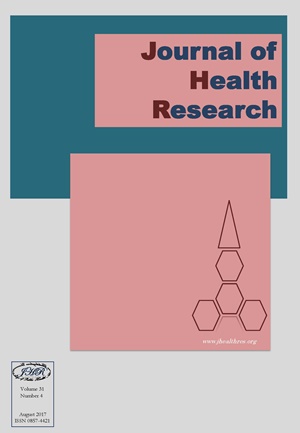Transforming Growth Factor Beta 1 (TGF-Beta 1) in Vaginal Incisional Wound Healing in Rats: Responses to Pegagan (Centella Asiatica) Leaves Extract
Keywords:
Vaginal incisional wound healing, Transforming growth factor beta 1 (TGF-Beta 1), Centella asiatica leaves extract, Postmenopausal hormone therapyAbstract
Background: Of the many molecular substances known to assist in wound repair, the Transforming Growth Factor Beta 1 molecule (TGF-Beta 1) is known to play a crucial role in various stages of wound healing. Recently, researchers found the role of TGF-Beta 1 acting as a regulator of vaginal tropoelatin production in the vaginal wall. In this study, we assessed the potency of TGF-Beta 1 expression in epithelial vaginal cells to help with increasing vaginal wall thickness and collagen production, as well as its responses to Centella asiatica leaves extract as a potential postmenopausal hormone therapy for vaginal atrophy healing in a rat model.
Methods: We explored the effect of Centella asiatica leaves extract to TGF-Beta 1 expression in epithelial vaginal cells of Rattus norvegicus strain Wistar. The extract was administered orally for 40 days after the animals declared experiencing atrophy in doses of 0, 30, 60, and 120 mg/Kbw/day. A modified Avidin-Biotin Complex (ABC) staining method was employed to observe the TGF-Beta 1 expression in the epithelial vaginal cells of the animal models. Non parametric tests were used to compare the mean difference of the observed parameters.
Results: The rise of percentage cells indicated that TGF-Beta 1 is not dependent on the dose of the Centella asiatica leaves extract. The positive trend in this observed parameter was assessed only at a dose group of 60 mg per Kbw. TGF-Beta 1 results in a positive trend to an increase in cell proliferation (rs = 0.075) and collagen production (rs = 0.142).
Conclusion: The findings of the study carry an expectation that Centella asiatica leaves extract has a prevailing medical potency in postmenopausal hormone therapy for vaginal incisional wound repair. However, considerations in applying the results to clinical practice in human should be underlined. Regardless of this limitation, the data suggests that a positive independent-concentration manner of Centella asiatica leaves extract may claim a mediation of normal wound healing in the vagina, and avoid recurrence of prolapse and symptoms in postmenopausal women.






